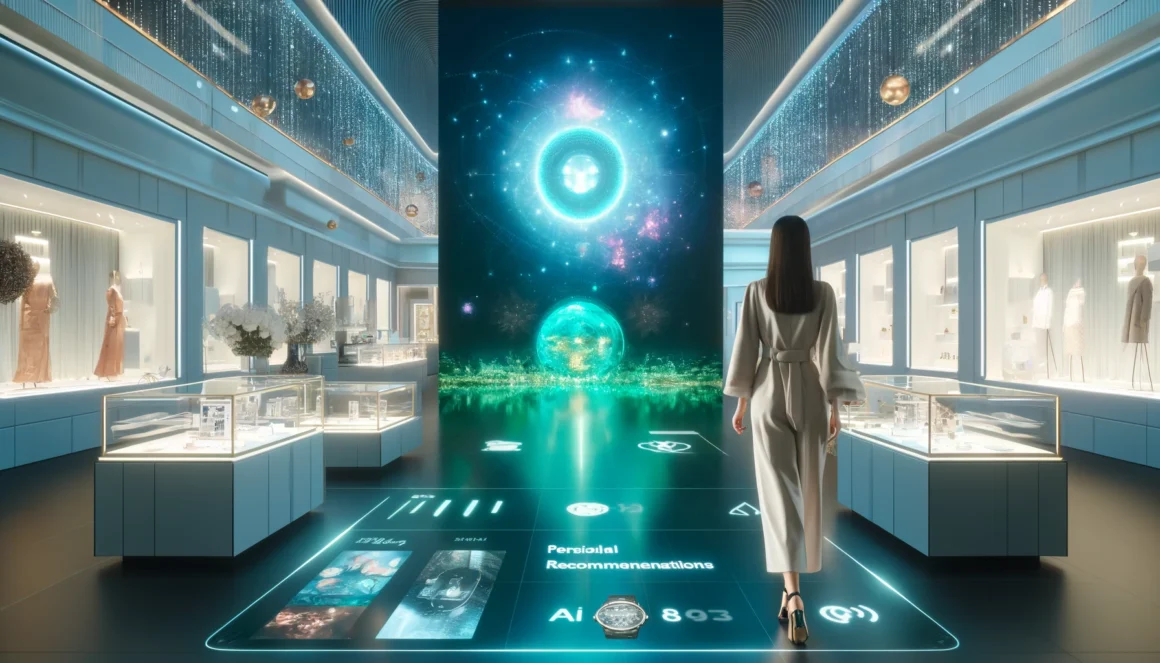Artificial Intelligence (AI) has emerged as a game-changer in various industries, with retail and advertising being at the forefront of this transformation. From enhancing customer experiences to optimizing marketing strategies, AI is reshaping how businesses interact with consumers. This article delves into the myriad ways AI is revolutionizing retail and advertising, offering insights into its applications, benefits, and future potential.
AI in Retail: Elevating the Shopping Experience
Personalized Shopping Experiences
AI enables retailers to provide highly personalized shopping experiences. By analyzing customer data, such as browsing history, purchase behavior, and preferences, AI algorithms can recommend products tailored to individual tastes. This level of personalization not only enhances customer satisfaction but also increases sales and customer loyalty.
Inventory Management and Demand Forecasting
AI-powered systems can predict demand trends with remarkable accuracy. By analyzing historical sales data, market trends, and even social media activity, AI helps retailers optimize their inventory levels, reducing both overstock and stockouts. This leads to cost savings and ensures that customers can always find the products they want.
Visual Search and Augmented Reality (AR)
AI-driven visual search technology allows customers to search for products using images instead of keywords. This is particularly useful in fashion and home decor, where visual appeal is paramount. Additionally, AR applications enable customers to virtually try on clothes or see how furniture would look in their homes, bridging the gap between online and in-store shopping experiences.
Chatbots and Virtual Assistants
AI-powered chatbots and virtual assistants provide instant customer support, answering queries, and guiding shoppers through their purchase journey. These tools can handle a wide range of tasks, from recommending products to processing returns, enhancing customer service while reducing operational costs.
AI in Advertising: Precision and Efficiency
1. Targeted Advertising: AI excels at analyzing vast amounts of data to identify target audiences with precision. By understanding consumer behavior and preferences, AI-driven advertising platforms can deliver highly relevant ads to the right people at the right time. This not only improves the effectiveness of advertising campaigns but also maximizes return on investment (ROI).
2. Programmatic Advertising: Programmatic advertising uses AI to automate the buying and selling of ad space in real time. This technology evaluates the value of each impression and determines the best price for ad placement, ensuring that advertisers reach their desired audience efficiently. The result is a more streamlined, cost-effective advertising process.
3. Content Creation and Optimization: AI can generate and optimize content for advertising campaigns. Natural language processing (NLP) algorithms can create compelling ad copy, while image recognition technology selects the most impactful visuals. AI also tests and optimizes different versions of ads to determine which performs best, continually improving campaign effectiveness.
4. Customer Insights and Analytics: AI provides deep insights into consumer behavior and ad performance. By analyzing data from multiple sources, AI tools can identify trends, measure campaign success, and provide actionable recommendations. This data-driven approach allows advertisers to make informed decisions and refine their strategies for better results.
The Future of AI in Retail and Advertising
The future of AI in retail and advertising is promising, with continuous advancements expected to bring even more innovation. Here are some trends to watch:
1. Hyper-Personalization: As AI algorithms become more sophisticated, the level of personalization in both retail and advertising will reach new heights. Future AI systems will anticipate customer needs and preferences with even greater accuracy, providing a seamless and highly individualized shopping experience.
2. Integration with IoT: The integration of AI with the Internet of Things (IoT) will create smarter retail environments. For instance, AI-powered sensors in stores can track customer movements and interactions, providing valuable data to optimize store layouts and product placements.
3. Enhanced Customer Engagement: AI will continue to enhance customer engagement through interactive and immersive experiences. Virtual shopping assistants, personalized video ads, and AI-driven social media interactions will create deeper connections between brands and consumers.
4. Ethical AI and Data Privacy: As AI usage grows, so will the focus on ethical AI and data privacy. Retailers and advertisers will need to ensure that their AI systems are transparent, fair, and respect consumer privacy. Building trust with customers through responsible AI practices will be crucial.
Conclusion
AI is undeniably transforming the retail and advertising landscapes, offering unprecedented opportunities for personalization, efficiency, and customer engagement. By leveraging AI technologies, businesses can stay ahead of the competition, deliver exceptional customer experiences, and achieve significant growth. As AI continues to evolve, its impact on retail and advertising will only deepen, paving the way for a more intelligent and connected future.

